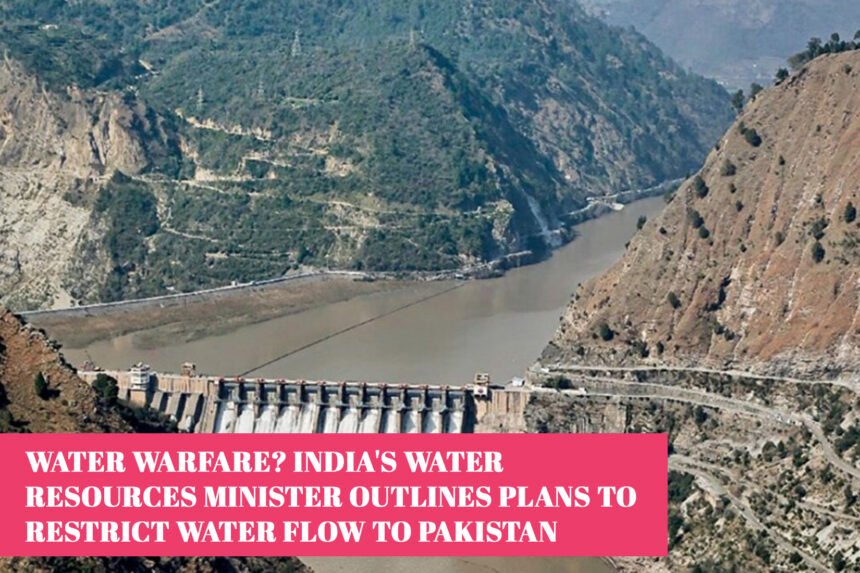Water Warfare: India’s Water Resources Minister, C.R. Patil, announced on April 25, 2025, that the country will ensure that no water is sent to Pakistan. He explained that the government is working on plans for different time frames—short, medium, and long term—to achieve this goal after meeting with Union Home Minister Amit Shah.
The Indus River system, which includes rivers like the Indus, Jhelum, Chenab, Ravi, Beas, and Sutlej, is crucial for Pakistan as it provides water for about 80% of its farmland, which totals around 16 million hectares. This water is primarily used for irrigation, supporting agriculture, which contributes nearly 25% to Pakistan’s economy.
Patil’s comments came after a letter from Debashree Mukherjee, Secretary of the Ministry of Water Resources, to her Pakistani counterpart, Syed Ali Murtaza, stating that India would be putting the Indus Waters Treaty (IWT) on hold immediately. The letter emphasized that honoring treaties is essential, but Pakistan’s ongoing cross-border terrorism, particularly affecting Jammu and Kashmir, has made it difficult for India to fully utilize its water rights. Mukherjee pointed out that Pakistan’s failure to respond to India’s requests to renegotiate the treaty was a breach of trust.
A government source indicated that since Pakistan has been informed of India’s stance on the treaty, there is no need to notify the World Bank, which has historically helped mediate disagreements about how to share water between the two countries.
In response, Pakistan’s Power Minister Awais Leghari criticized India’s decision to suspend the treaty, calling it an act of “water warfare.” A spokesperson for the World Bank stated that it does not comment on decisions made by its member countries regarding treaties.

Following a terrorist attack in Pahalgam, India announced on April 23, 2025, that it would halt communication with Pakistan regarding the sharing of water data and updates on hydroelectric projects on the Indus rivers. The Permanent Indus Commission, which consists of experts from both countries to resolve water-sharing disputes, has not met since 2022. India had previously called for a renegotiation of the treaty in 2023, citing changes in population, water needs, climate threats, and ongoing terrorism as reasons for the need to update the agreement.
ALSO READ: Former Ambassador Kanwal Sibal Urges Indus Waters Treaty Suspension after Terror Attack
India’s main request was to create a new way to resolve disputes. According to the IWT, India is restricted from building significant water storage on the western rivers and must maintain certain water levels to avoid disrupting Pakistan’s agriculture. India’s hydropower projects on these rivers, like the Kishenganga and Baglihar projects, are designed to divert river flow for electricity generation without creating large storage facilities. Pakistan has stated that India is manipulating the designs of its projects to regulate river flow. Indian officials have clarified that their goal is to operate these projects efficiently without violating the treaty.
After the Pahalgam attack, sources revealed that India is considering new options under the IWT that it had not explored before. This could involve stepping back from discussions on a new dispute resolution process, altering the design of its hydropower projects to allow for more water storage, and using techniques to manage water flow downstream.
MUST READ: Pakistan Suspends Simla Agreement in Response to India’s Water Policy Changes










